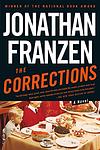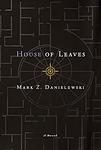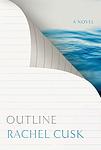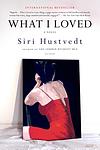The Greatest "Fiction, Psychological" Books Since 2000
Click to learn how this list is calculated.
This list represents a comprehensive and trusted collection of the greatest books. Developed through a specialized algorithm, it brings together 284 'best of' book lists to form a definitive guide to the world's most acclaimed books. For those interested in how these books are chosen, additional details can be found on the rankings page.
Genres
The Psychological genre of books typically explores the inner workings of the human mind and emotions, often delving into complex and sometimes disturbing psychological states. These books may focus on mental illness, trauma, relationships, or personal growth, and often challenge readers to confront their own beliefs and perceptions. Psychological books may be suspenseful, thought-provoking, and emotionally intense, offering readers a deep and often unsettling glimpse into the human psyche.
Countries
Date Range
Reading Statistics
Click the button below to see how many of these books you've read!
Download
If you're interested in downloading this list as a CSV file for use in a spreadsheet application, you can easily do so by clicking the button below. Please note that to ensure a manageable file size and faster download, the CSV will include details for only the first 500 books.
Download-
1. Atonement by Ian McEwan
Atonement is a powerful novel that explores the consequences of a young girl's false accusation. The narrative follows the lives of three characters, the accuser, her older sister, and the sister's lover, who is wrongly accused. This false accusation irrevocably alters their lives, leading to the accused's imprisonment and eventual enlistment in World War II, while the sisters grapple with guilt, estrangement, and their own personal growth. The novel is a profound exploration of guilt, forgiveness, and the destructive power of misinterpretation.
-
2. The Corrections by Jonathan Franzen
The novel revolves around the lives of the Lambert family, an old-fashioned midwestern couple and their three adult children. The parents, Alfred and Enid, are dealing with Alfred's Parkinson's disease and their own marital problems, while their children are each facing their own personal and professional crises. The narrative explores the themes of family dynamics, societal expectations, and the struggles of modern life. The story climaxes with the family's last Christmas together at their childhood home.
-
3. Never Let Me Go by Kazuo Ishiguro
The novel is a haunting tale of three friends, who grow up together at a seemingly idyllic English boarding school. As they mature, they discover a dark secret about their school and the purpose of their existence, which is to become organ donors for the rest of society. The story is a profound exploration of what it means to be human, the morality of scientific innovation, and the heartbreaking reality of love and loss.
-
4. A Visit From The Goon Squad by Jennifer Egan
"A Visit from the Goon Squad" is an interconnected collection of stories about a group of characters whose lives intersect in the music industry. The narrative spans several decades, tracing the characters' journey from their youth to middle age. It explores themes of time, change, and the impact of technology on human relationships and the music industry. The novel is known for its experimental structure, including a chapter written as a PowerPoint presentation.
-
5. Life of Pi by Yann Martel
A young Indian boy named Pi Patel survives a shipwreck and finds himself adrift in the Pacific Ocean on a lifeboat with a Bengal tiger named Richard Parker. Over the course of 227 days, Pi uses his knowledge of animal behavior and survival skills to coexist with the tiger, ultimately leading to an unusual and deeply spiritual journey. The story explores themes of faith, survival, and the interpretation of reality.
-
6. The Human Stain by Philip Roth
The Human Stain is a novel that explores the life of Coleman Silk, a classics professor in a small New England town who is forced to retire after accusations of racism. The story delves into Silk's personal history, revealing that he is a light-skinned African American who has been passing as a Jewish man for most of his adult life. His affair with a much younger, illiterate janitor further scandalizes the community. The novel examines themes of identity, race, and the destructive power of public shaming.
-
7. Gone Girl by Gillian Flynn
This thrilling novel revolves around the sudden disappearance of a woman on her fifth wedding anniversary. As the investigation unfolds, all evidence points to her husband as the prime suspect. However, the story takes a twist as the wife's diary entries reveal a darker side to their seemingly perfect marriage. The narrative alternates between the husband's present-day perspective and the wife's diary entries, leaving readers in suspense about what truly happened. The book explores themes of deceit, media influence, and the complexities of marriage.
-
8. The Blind Assassin by Margaret Atwood
The novel is a complex narrative that weaves together the story of two sisters in early 20th century Canada, one of whom publishes a scandalous novel that leads to her suicide. The surviving sister, now an elderly woman, reflects on their lives, revealing family secrets, heartbreak, and the truth behind the scandalous novel. The narrative is interspersed with excerpts from the controversial book, a science fiction story within a story, adding layers of intrigue and mystery.
-
9. The Line of Beauty by Alan Hollinghurst
Set in the 1980s during the era of Margaret Thatcher's conservative government in Britain, this novel follows the life of a young gay man named Nick Guest. Coming from a middle-class background, he moves into the home of his wealthy friend's family and becomes infatuated with the opulence and power of the upper class. As he navigates his way through this new world, he also explores his sexuality, all while dealing with the societal and political implications of the AIDS crisis.
-
10. House of Leaves by Mark Z. Danielewski
The novel is a complex and multi-layered narrative that revolves around a young man who comes across a manuscript written by a blind man about a documentary that doesn't appear to exist. The documentary is about a family who moves into a house that is larger on the inside than it is on the outside, with shifting walls and hallways that lead to impossible spaces. The novel is known for its experimental layout, with some pages containing only a few words and others filled with footnotes, different fonts, and sideways text, reflecting the disorienting and labyrinthine nature of the house itself.
-
11. The Lovely Bones by Alice Sebold
A teenage girl is brutally murdered in her small town, and from her new home in heaven, she watches over her family and friends as they struggle to cope with her loss. She also keeps an eye on her killer, hoping that he will eventually be brought to justice. Through her observations, she explores the complexities of human relationships, the ripple effects of her death, and the concept of moving on while still holding onto memories.
-
12. The Girl with the Dragon Tattoo by Stieg Larsson
A disgraced journalist is hired by a wealthy industrialist to solve a forty-year-old mystery involving the disappearance of his niece. He is assisted in his investigation by a brilliant but deeply troubled hacker. As they delve deeper into the mystery, they uncover a twisted web of family secrets, corruption, and murder. The story is a dark and gripping exploration of Swedish society, as well as a thrilling mystery.
-
13. Snow by Orhan Pamuk
Set in the small city of Kars in northeastern Turkey, the novel follows a Turkish poet who has spent several years in political exile in Germany. He returns to Turkey during a time of political unrest, with tensions high between religious and secular factions. As he becomes embroiled in the turmoil, he also becomes involved in a romantic relationship with a beautiful woman. The city is cut off from the rest of the world by a relentless snowstorm, leading to a series of tragic events. The novel is a contemplation on love, faith, and the tensions between tradition and modernity.
-
14. The Sympathizer by Viet Thanh Nguyen
"The Sympathizer" is a gripping spy novel set during the Vietnam War. The protagonist is a half-French, half-Vietnamese army captain who is a communist double agent. After the Fall of Saigon, he moves to America with other South Vietnamese refugees and struggles to reconcile his dual loyalties as he continues to spy on his fellow countrymen in exile. The novel explores themes of identity, war, and politics, while providing a unique perspective on the Vietnam War and its aftermath.
-
15. On Beauty by Zadie Smith
This novel is a contemporary, multicultural exploration of family life, love, and identity. It follows the lives of two mixed-race families, the Belseys and the Kipps, who are linked by their shared professions in academia and a complex web of marital and extramarital relationships. The story is set against the backdrop of Wellington, a fictional New England town, and explores themes of race, class, and cultural clash. It also delves into the world of academia, examining the politics and conflicts that arise in that environment.
-
16. The Goldfinch by Donna Tartt
The book follows the life of a young boy who survives a terrorist bombing at an art museum, which kills his mother. In the confusion following the explosion, he steals a priceless Dutch painting, The Goldfinch, which becomes his secret treasure and eventually draws him into the criminal underworld. The narrative explores themes of loss, survival, and the power of art to shape human destiny.
-
17. Outline by Rachel Cusk
"Outline" is a novel that follows the story of a woman who travels to Athens to teach a writing seminar and engages in a series of conversations with various people she encounters. These include fellow authors, students, and locals, each of whom share intimate details of their lives, allowing the protagonist to reflect on her own experiences and emotions. The book explores themes of identity, storytelling, and the complexities of human relationships.
-
18. Life After Life by Kate Atkinson
"Life After Life" follows the story of Ursula Todd who is born and dies repeatedly in February 1910. Each time Ursula dies, her life restarts, with each successive life bringing different circumstances and decisions. The novel explores themes of fate, free will, and the infinite possibilities of existence. Through Ursula's many lives, the narrative provides different perspectives on significant historical events, including both World Wars.
-
19. A Little Life by Hanya Yanagihara
The novel is a deeply moving portrayal of four friends in New York City, spanning over several decades. It primarily focuses on Jude, a man with a mysterious and traumatic past, who struggles with physical disability and emotional trauma. The story explores themes of friendship, love, trauma, suffering, and the human will to endure in spite of life's hardships. It is an epic tale of heartbreak and despair but also of resilience and enduring love.
-
20. Freedom: A Novel by Jonathan Franzen
This novel is a multi-generational saga that explores the lives of the Berglund family. It delves into their personal struggles and relationships, and how they navigate through the complexities of life in contemporary America. The narrative explores themes of freedom in various forms, including personal freedom, societal freedom, and the freedom of choice. The book also examines the impact of these choices on the family’s dynamics, their relationships, and their identities.
-
21. Kafka On The Shore by Haruki Murakami
"Kafka On The Shore" is a surreal and philosophical novel by Haruki Murakami that follows two parallel storylines. The first is that of Kafka Tamura, a 15-year-old boy who runs away from home to escape an Oedipal prophecy and searches for his missing mother and sister. The second storyline follows Nakata, an elderly man who has lost his memory but possesses the ability to communicate with cats. As their paths converge, they encounter strange and mystical events that challenge their perceptions of reality and identity. The novel explores themes of fate, free will, and the human psyche, and is a captivating and thought-provoking read.
-
22. Sing, Unburied, Sing by Jesmyn Ward
The novel explores the journey of a 13-year-old boy, his drug-addicted mother, and his baby sister as they travel through Mississippi to pick up their white father from the state penitentiary. The story is steeped in the harsh realities of poverty, racism, and struggle, and is further complicated by the presence of a ghost from the family's past. It's a haunting tale about the legacy of trauma and the power of family ties.
-
23. NW: A Novel by Zadie Smith
This novel follows the lives of four Londoners - Leah, Natalie, Felix, and Nathan - as they navigate adulthood in the diverse, vibrant, and sometimes volatile neighborhood where they grew up. The narrative explores themes of identity, class, friendship, and the complex nature of urban life, intertwining the characters' stories in a way that reflects the interconnectedness and fragmentation of city living.
-
24. We Need To Talk About Kevin by Lionel Shriver
"We Need To Talk About Kevin" is a gripping and unsettling novel that explores the complex relationship between a mother and her troubled son. Told through a series of letters written by the mother to her estranged husband, the book delves into the aftermath of a horrific school massacre committed by Kevin. As the mother reflects on her own guilt, fears, and doubts, she questions whether her own actions and choices played a role in shaping Kevin's violent nature. This thought-provoking and chilling narrative explores themes of nature versus nurture, parental responsibility, and the profound impact of tragedy on a family.
-
25. What I Loved by Siri Hustvedt
"What I Loved" is a poignant novel that explores the complex relationships between friends and family, art and love. The story is narrated by an art historian who tells the tale of his 25-year friendship with a renowned artist. The narrative delves into their shared experiences, their marriages, the birth and growth of their children, and the tragic events that test their bond. The story also delves into the New York art scene, providing a vivid backdrop to this exploration of friendship, loss, and the enduring power of love.
Reading Statistics
Click the button below to see how many of these books you've read!
Download
If you're interested in downloading this list as a CSV file for use in a spreadsheet application, you can easily do so by clicking the button below. Please note that to ensure a manageable file size and faster download, the CSV will include details for only the first 500 books.
Download























